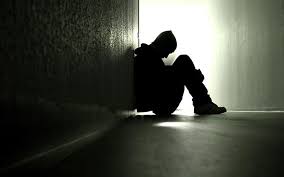
How we think, matters
We all know people that seem to be able to bounce back quickly from seemingly devastating events. They’re able to remain calm and positive despite what’s happened to them.
What makes them different to those that tend to wallow in self-pity and sadness for a long time?
The difference is in the way they think about the circumstances of their life.
Resilience is about being able to put things into perspective.
Consider this example: You’re made redundant from a job that paid well and that you really enjoyed.
A person with unhealthy thinking habits (or ‘thinking errors‘ as some psychologists like to call them) might have these kinds of thoughts:
“How can they do this to me?” (blaming others)
“I’ll never get another job as good as this” (all-or-nothing thinking)
“This has ruined my life” (catastrophising)
Someone with healthier thinking habits is able to be more rational and constructive, boosting resilience:
“The company has had to make some hard decisions to survive, but I know it’s not personal”
“Maybe I can use my redundancy money to upskill myself, and get a better job in the future”
“Although disappointing, this isn’t the end of the world for me”
It’s important to acknowledge your feelings – it’s natural and human to feel bad when bad things happen.
But getting into the habit of consciously monitoring your thinking at times of stress, recognising any destructive thoughts you may have, and turning them into more rational language, is the key to reducing your negative feelings about a bad event.
A qualified life coach can guide you through this process. Once this happens, instead of ruminating about your terrible life, you’re free to explore your options and take constructive action to make things better.
Put it into perspective
When something bad happens, it may only really affect a single aspect of your life, even though it feels like it affects everything. If you’re able to mentally separate the incident from the rest of your life, it’ll help you to put it into perspective.
Let’s say you have a relationship break-up. Should this incident really have a negative effect on how well you do your job, or your relationship with your family, or your daily exercise routine?
Recognise that your life is made up of many different things, and just because you’re having issues in one area, doesn’t mean you have to let it contaminate everything else.
Build resilience
Life coaching can help you to see things as they are, not as you may perceive them.
So the next time something bad happens to you, put it into perspective, focus on what you want, and get on with your life.
What do you think? Let me know in the comments below.
Copyright Eclipse Life Coaching Ltd 2009-2025
